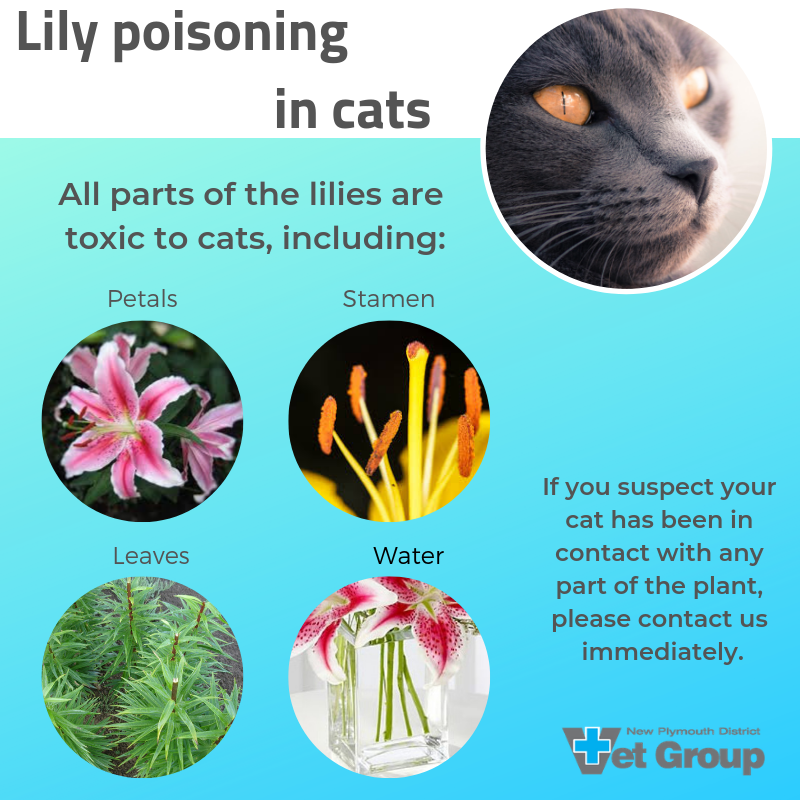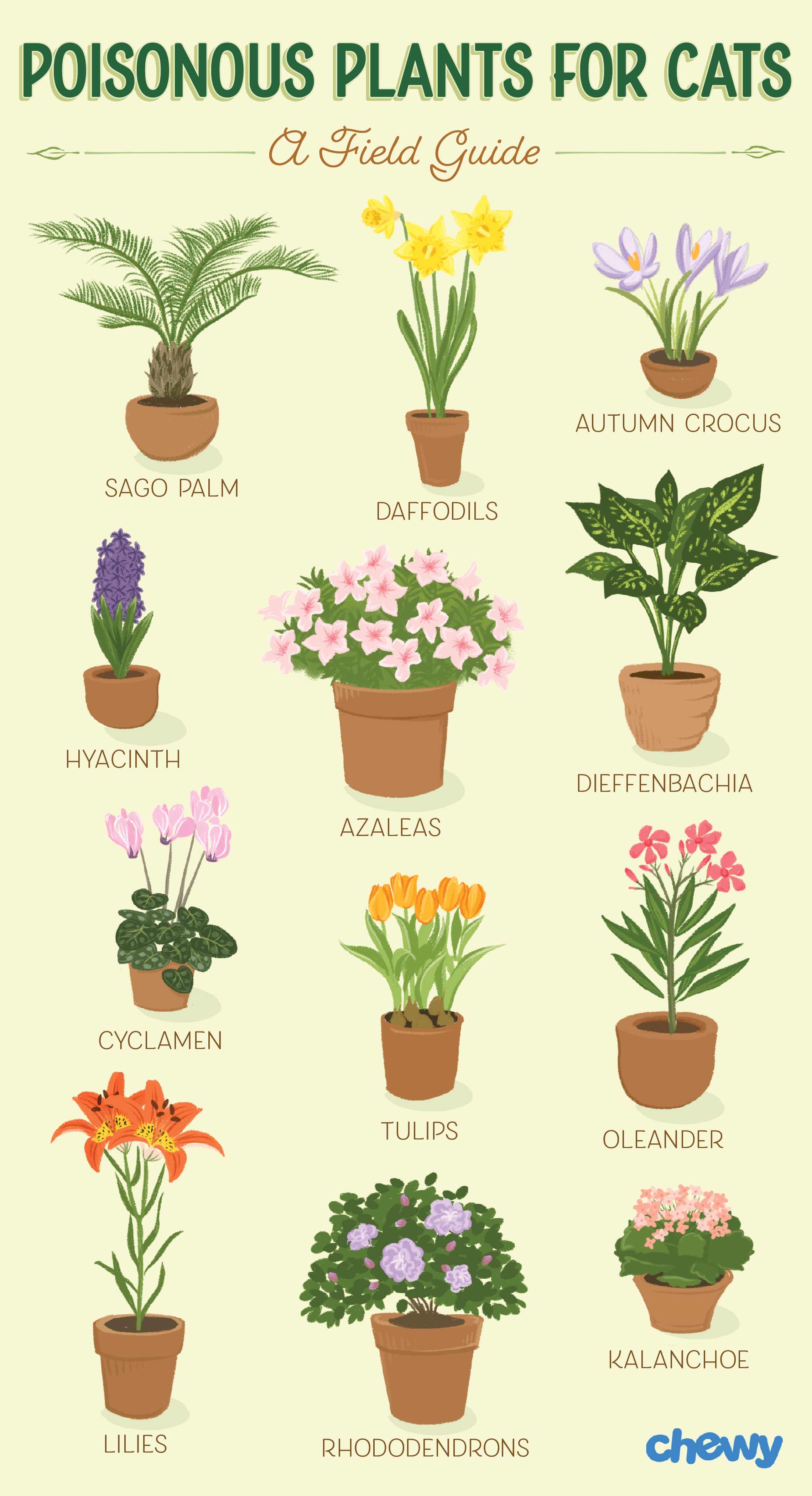Although cats are loners and can hide their pain from you, there are signs and symptoms of lily toxicity you can pick up. Treatment for lily poisoning often includes:

Lily Poisoning In Cats - New Plymouth Vet Group
It takes only a small amount to result in poisoning.

Lily flower poisonous cats. With exception to peace lily and , all other lily varieties are major threats to cats, causing kidney failure and death. There is a family of flowers known as the liliaceae family, and this includes more than 160 genera of plants: The aspca animal poison control.
It contains lycorine, a chemical that can be deadly to humans and pets if. Therefore, it should not be eaten. All parts of the plant, including its petals, stamens.
They contain cardenolides and are cardiotoxic. You can visit the pet poison. While these lilies are not renally toxic, severe clinical signs may still be seen.
The red spider lily is poisonous to both humans and animals. The entire plant is toxic. The entire lily plant is toxic:
Only genus lilium (true lilies) and genus hemerocallis (day lilies). They may not be as toxic as the members of the true lily family, but they can still be dangerous to cats when they are consumed. The threat posed to cats by lilies really shouldn’t be minimised;
The stem, leaves, flowers, pollen, and even the water in a vase. Lilies ( lilium spp and hemerocallis spp) are extremely toxic to cats and can kill them. Yes, calla lilies are still toxic to cats.
They’re an attractive, fragrant flower and it’s no surprise they’re so. Cats have been known to be poisoned by ingesting vase water or even licking pollen that has brushed onto their fur. Signs of lily poisoning in cats.
The toxin is extremely potent, and all plant parts are toxic. Alstroemeria isn’t deadly toxic to cats, but ingestion of the flowers can cause nasty skin or stomach irritations, including mouth sores, vomiting, and upset stomach. All parts of the plant are poisonous including the pollen, leaves, flowers,.
Some common plants that are toxic to cats include: Lilies in the “true lily” and “daylily” families are very dangerous for cats. According to the american society for the prevention of cruelty to animals, lily of the valley is toxic to cats if they ingest it.
Lilies are incredibly dangerous to cats, and it is a variety of factors that makes this the case. All species of easter, japanese, stargazer, tiger, and daylilies (species lilium and hemerocallis) are toxic to the kidney of cats. The first is that just a.
It is not an overstatement to say that lilies kill cats. Washing any remaining lily pollen from the skin and coat. Treatment for lily poisoning in cats.
If the kidneys are damaged and no urine is. Raisins are dried grapes that are toxic to dogs.

Can Dogs Eat Grapes? What About Raisins?
Grapes, raisins, sultanas and currants are all potentially poisonous to dogs.

Dogs eating raisins poisonous. Black or white, organic or conventionally grown, pesticide free or pesticide contaminated, seeded or seedless, fresh or dried, raw or cooked, grapes and. Raisins should always be checked to make sure they are free of any pesticides or chemicals that could be harmful to dogs. Side effects of raisins for dogs:
It is unknown what amounts of raisins and grapes are lethal to dogs, but 0.7 ounces per kilogram of the pet’s weight of grapes and 0.1 ounces per kilogram of raisins is considered. A dog eating raisins or grapes is a medical emergency, and you need to start immediate treatment. After eating raisins, your dog may.
If you think that your dog has eaten the fruits within the last two hours,. The toxic dose varies from dog to dog,. The consumption of grapes and raisins presents a potential health threat to dogs.their toxicity to dogs can cause the animal to develop acute kidney injury (the sudden development of kidney.
In 2016 alone, 3,722 calls and inquiries regarding grape and raisin poisoning have been made based on a report by aspca animal poison control center. Raisins are grapes that have been dried. While experts know that dogs can’t eat raisins, they don’t really know why.
Ingesting even a small amount of raisins and grapes can cause a dog to develop acute kidney injury. If a dog eats raisins, it may experience vomiting, diarrhea, lethargy, and abdominal pain. In acute kidney injury, the kidneys suddenly stop functioning over a short.
Toxic effects on dogs include vomiting, diarrhea, and dehydration within 12 hours of ingestion; Raisins, sultanas, and currants are naturally dried grapes. The lowest documented harmful dosage for raisins is 0.04 oz per pound (2.8g per kg) body weight, and the lowest reported toxic dose for grapes is 0.32 oz per pound (19.6g per.
If a dog only ate a few grapes or raisins (depending on the size of the dog) and received immediate treatment, the prognosis is excellent. And can lead your pet to a severe health condition like. Oliguric/anuric renal failure may develop within 48 hours of intake.
It does not take a lot for a. If eaten they can cause gut problems and in serious cases, kidney failure. Raisins are extremely dangerous and poisonous for puppies.
Help my dog ate raisins! Find out how toxic raisins are, how many will harm a dog, and what you should do if your pet ate raisins. Raisins are poisonous to dogs because they contain high levels of oxalates, which can.